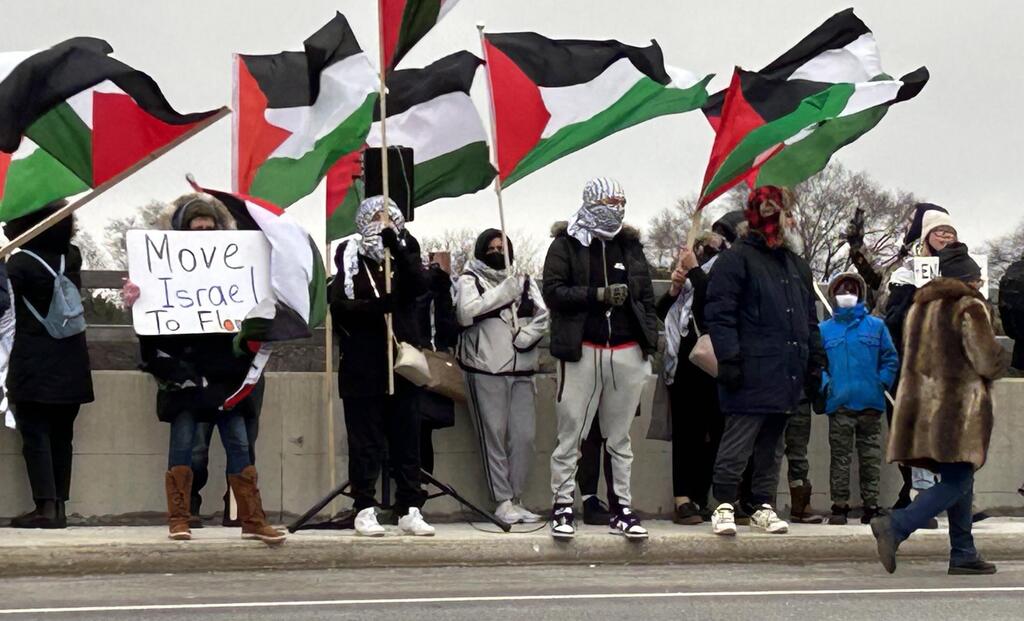
Olim at War
'I feel safer in Israel than the streets of Toronto'
100 days into Israel’s war against Hamas and since the October 7th attacks, CTech spoke to Amy Leifer, a Canadian immigrant who made aliyah a month before the war began and is now working at a tech company.
On October 7th, Amy Leifer woke up in her Tel Aviv apartment to the sound of sirens. “It was the first time I ever heard them, and, at first, I wasn’t sure what it was.” Luckily, her roommate knew and she led her to the stairwell, since their building has no bomb shelter. “I really had no clue what was happening.” Leifer, aged 36, landed in Israel on September 5th, a little over a month before the war broke out.
Half an hour after the first round of sirens, neighbors began getting called up for reserve duty. “The fear and realization of what was happening was starting to sink in. I live on Dizengoff which is normally bustling and it was dead. There wasn’t a soul on the street,” Leifer says. “The booms were so loud and there was one really loud one in particular - we later heard that a rocket hit a building on Ben Yehuda. It was very scary.” She went to friends who had a bomb shelter for the first couple of days of the war and later to her sister’s in Netanya.
Leifer, who had just immigrated from Toronto, Canada, noted the “mental anguish” shared by many immigrants with family abroad, of not being able to easily connect with their families due to the time difference, and especially those who keep shabbat. When she was in Netanya, she said that “every sound was triggering - a Wolt bike, or a washing machine - I would think it was a siren for a second.”
After a couple of weeks she returned to her apartment in Tel Aviv partly because she felt like she had a good support system of friends, because she trusted the Iron Dome, and because she felt like she could be useful. “I felt like the country needed me.” Leifer decided to help a family with young children, because, at the time, there was no school, and to volunteer preparing food for soldiers.
She spent the first month of the war looking for a job, and began working at tech company Atera, an AI-powered IT management platform, on the customer success team at the end of October. Leifer says that she feels incredibly lucky to have found her position so soon after she immigrated and also under such exceptional circumstances. “I know that I’m very lucky. I love my company and my coworkers.”
This article is part of a larger CTech series called ‘Olim at War,’ chronicling the experiences of olim during the war, including those serving in the army, immigrants who arrived shortly before the war and since the war began, and the intersection between their identity as immigrants and Israelis.
Atera, like virtually every other Israeli tech company, has felt the impact of the war. “There are a lot of staff or their spouses who have been called up to miluim [reserves]. Someone’s sister was one of the hostages who has since been released. It’s a very stressful time for everyone," says Leifer.
Before moving to Israel, Leifer worked in customer success in Toronto. She says that she had a wonderful life in Canada, close to her family and friends, and had a great job, but ultimately she wanted to be in Israel. Leifer, who lived in Israel during a gap-year after high school, says that she “always felt a strong connection to Israel, and I’d thought about moving for about five years.”
When she visited in February 2023 for her sister’s wedding she decided to make the move. “I could see how happy people were who lived here, how they worked to live whereas in North America people live to work,” says Leifer. “I wanted to be somewhere where I felt like I was contributing to society and where I could grow. Nothing scared me about it; not the language, not the bureaucracy, not being away from family even though I’m close with them and knew it would be difficult. But I also knew that it was the right choice for me.”
She says that despite the war, she feels that she has been very lucky. “I had a lot of luck when I came to Israel, in terms of finding my job and a place to live, and getting things sorted as a new immigrant, finding a community and making friends. But all of that is also work,” she says, noting that having family and friends who already lived here made it easier. “I was very lucky to have a handful of people who are supportive and there for me. Not everyone has that.”
Leifer says that when the war broke out a month after arriving in Israel, while scary and shocking, she never considered going back to Canada. “I never entertained it. I felt that I was needed here.” She also notes that rising global antisemitism including in Canada, which has seen an enormous spike in antisemitic rhetoric and acts across the country since October 7th, did little to incentivize her to leave.
Toronto has been one of the epicenters of antisemitism in Canada, with massive anti-Israel protests congregating, among other places, on a major overpass leading into one of Toronto's largest Jewish communities. It was cleared by police after several days with some protestors being charged with incitement against Jews.
“Especially looking at how the world has responded, I knew that I would feel safer here than the streets of Toronto. There were scary moments, but I never felt that I needed to go back and that’s how I knew that this was the right place for me.”















